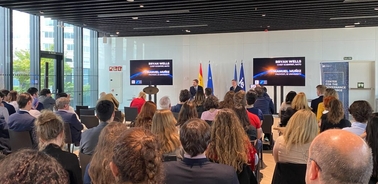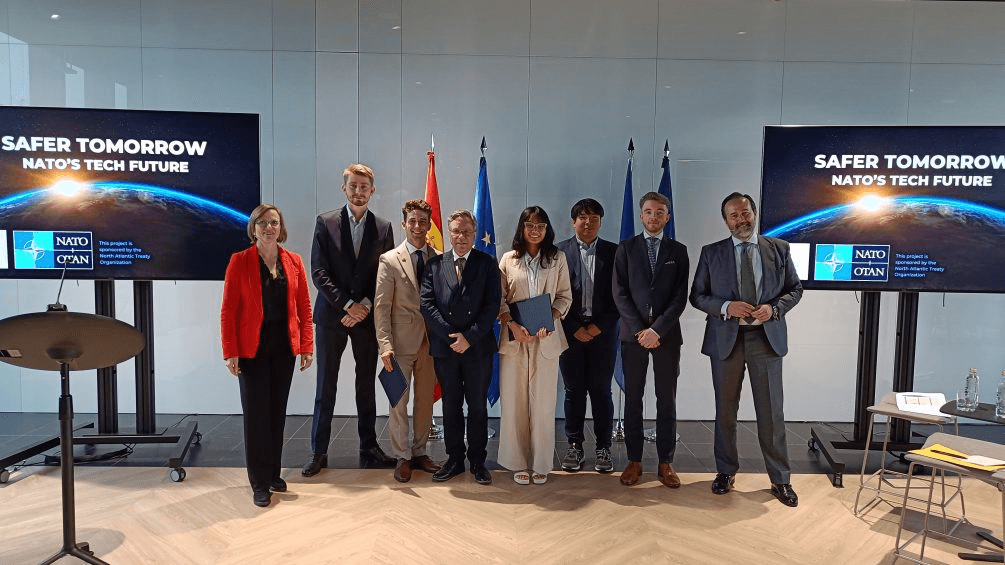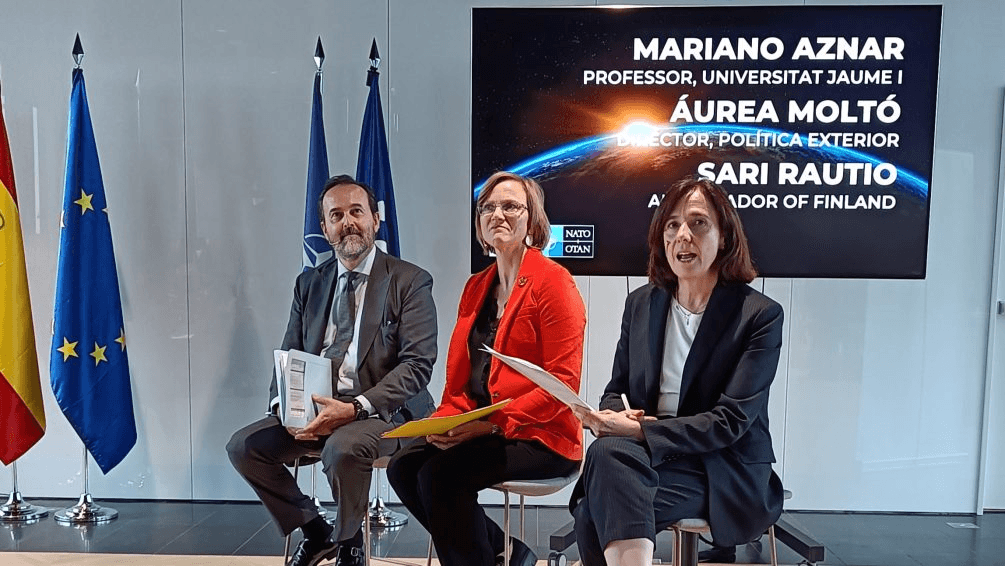- Home
- News And Events
- News
- Safer Tomorrow Selects Two Innovation Ideas For The Future Of Nato
Safer Tomorrow Selects Two Innovation Ideas for the Future of NATO

Bryan Wells, NATO’s Chief Scientist was the keynote speaker at the Global Final where Quynh Dinh and Giancarlo Da-Ré won the price for the best student papers on emerging technologies and the future of security.
The Safer Tomorrow Student Challenge, a competition that mobilized students across the world to advance proposals on issues such as how NATO can establish itself as a leader in the responsible use of Emerging Technologies, culminated on May 23rd, 2023, with a global final held at the IE Tower. The event, sponsored by NATO, was the final step of the Safer Tomorrow: Security Starts with YOU(TH) Initiative, a project seeking to raise awareness on the importance of a defense and security culture among younger generations.
Quynh Dinh, from IE University, was the winner for the undergraduate level of the challenge, with her proposal for an AI Planning Group (AIPG), and Giancarlo Da-Ré, from the University of Toronto, was the winner for the graduate level, with his proposal on unmanned green technologies for interoperable surveillance and early warning systems. The other four finalists were Gustav Christensson (Swedish Defence University), Kylar Cade (IE University), Viktor Hald Nelson (Roskilde Universitet), and Cheng Kai Ang (Noel) (King’s College London).
The event featured a fireside chat between Dr. Bryan Wells, NATO’s Chief Scientist, and Manuel Muñiz, Provost of IE University, where Dr. Wells underscored the indispensability of academic excellence to maintain NATO’s competitive edge in the realm of disruptive technologies.
The jury panel assessing the students’ proposals was composed of experts in the field, who judged the papers on the criteria of innovation, relevance, benefits for society, and feasibility. The judges that selected the finalists were Cristina Manzano, Director of IE Insights; Darynell Rodríguez and Michele Testoni, professors at the IE School of Politics, Economics and Global Affairs. The panel of judges that selected the final winners were Sari Rautio, Ambassador of Finland in Spain, Mariano Aznar, Professor at the Universitat de Valencia, and Áurea Moltó, Executive Editor of Política Exterior, who emphasized the importance of broadening discussions on security and defense beyond closed circles to involve the wider public.
Irene Blázquez Navarro, Director of the Center for the Governance of Change, emphasized the transformative power of technology in shaping the dynamics of power, prosperity, peace, and security, and the positive outcomes the former can bring with effective governance.
Brigadier General Juan Ramón Sabaté, from the Center for Advanced Studies of National Defense (CESEDEN), delivered the closing remarks.
The CGC will soon release a policy brief, gathering the six finalist’s proposals and key takeaways from the event.

